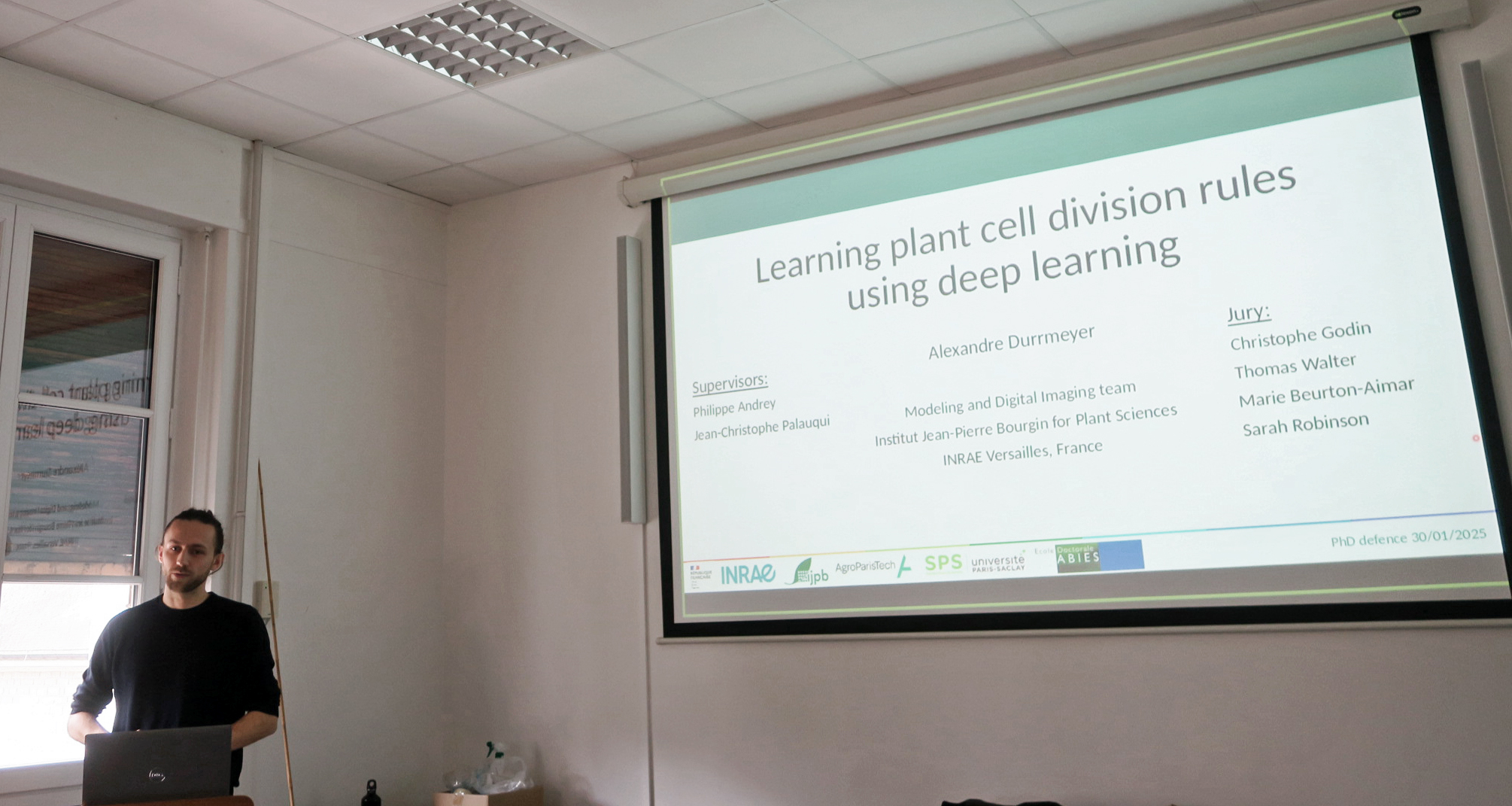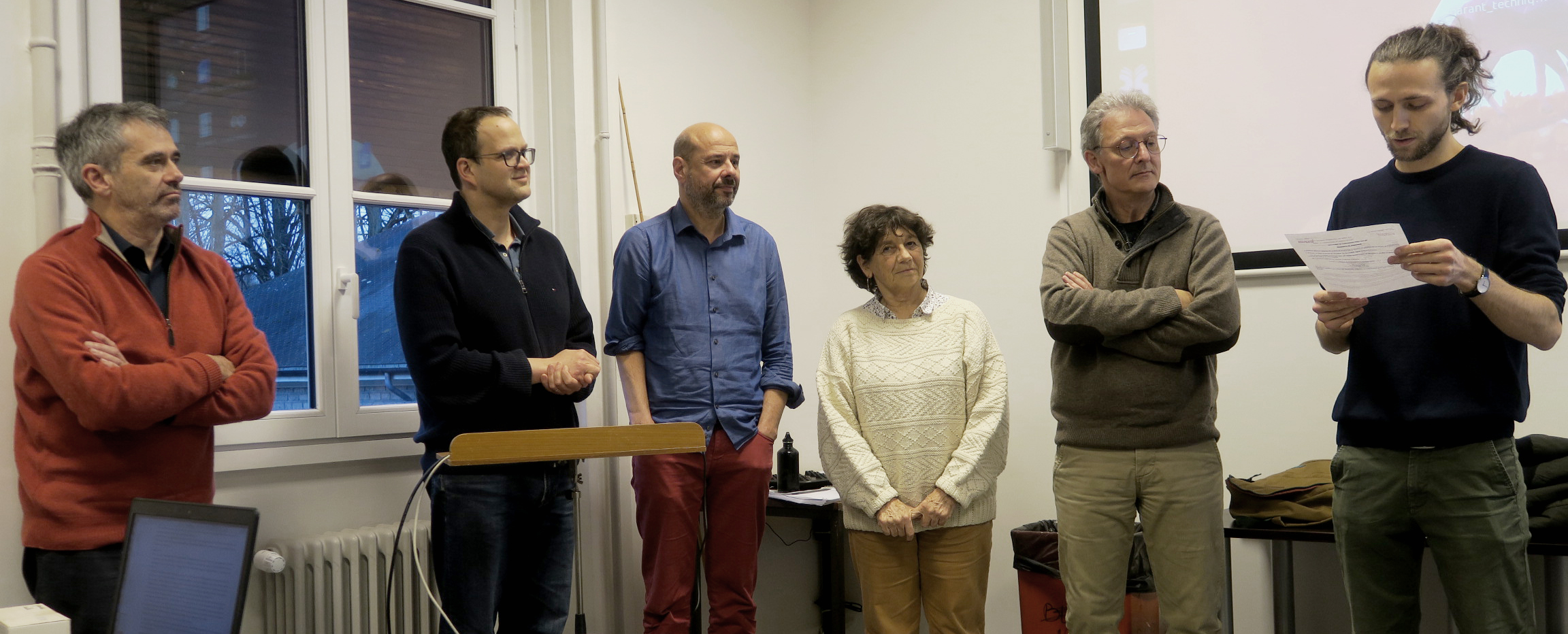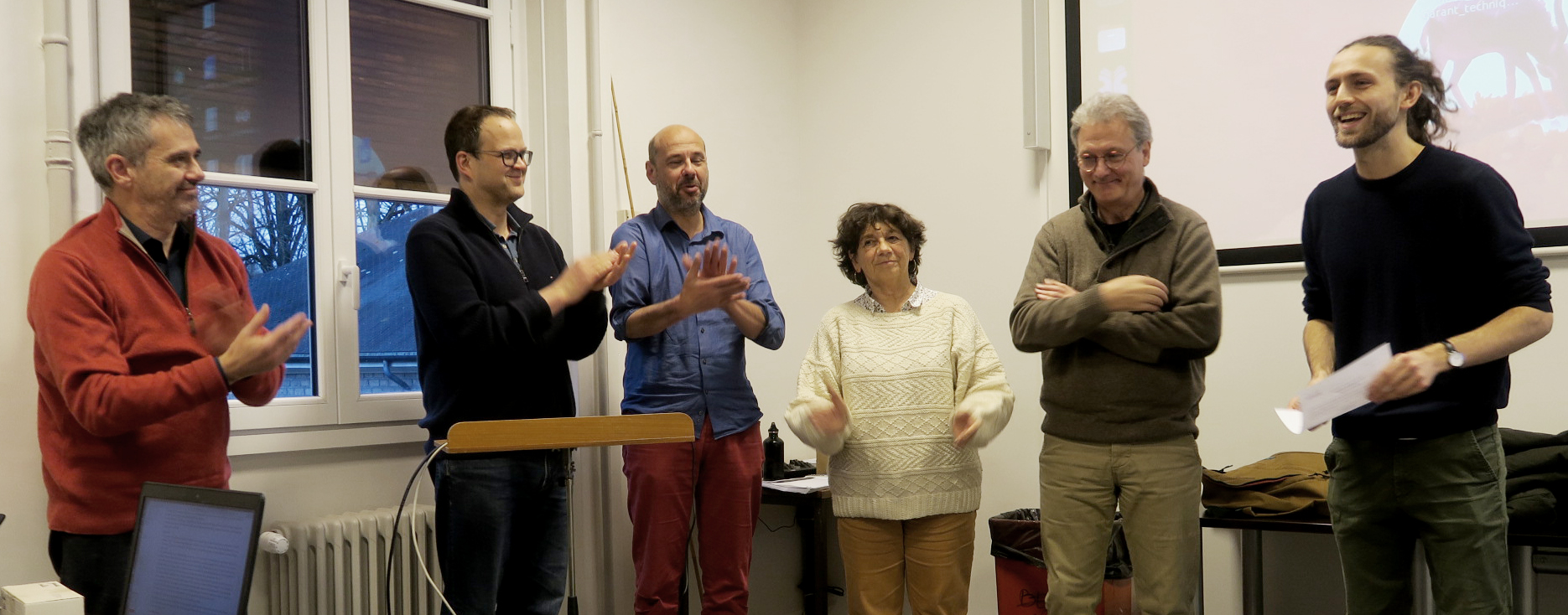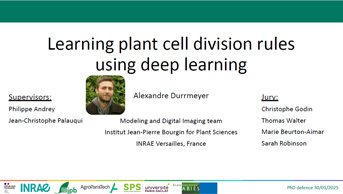Thesis defense: Alexandre Durrmeyer
Using deep learning to learn geometric cell division rules
Morphogenesis is the process by which an organism develops and acquires its shape. For multicellular organisms, this process involves the creation of structures from a large number of cells, it is thus necessary to understand the mechanisms by which cells influence morphology. Cell division is one of the key mechanisms in this process. In plants, which have semi-rigid walls that prevent cell movement, cell division is particularly crucial in defining tissue structure. During division, a new wall is formed at the division plane between the two daughter cells, determining their position and neighboring, and thus redefining the tissue's mechanical, topological, and other properties. Various factors influence the positioning of the division plane, but their role and interaction are complex and difficult to disentangle. To study these influences, different models, usually built from predefined rules, allow hypotheses about division to be tested and compared with real observations.
This thesis explores the possibility of taking the opposite approach, building a model from observations of cell division. The deep learning approach, recognized for its ability to handle complex data, is here evaluated through two architectures.
First, the UNet architecture is evaluated for its ability to model plant division. Secondly, the NCA architecture, proposed as a more transparent alternative to UNet, is tested in an attempt to extract an intelligible division rule after the learning phase. The usefulness of these approaches for biologists is discussed through various application cases throughout this thesis.
Director: Philippe Andrey - INRAE, IJPB, Versailles, "Modeling and Digital Imaging" MiN team
Co-Supervisor: Jean-Christophe Palauqui - INRAE, IJPB, Versailles, "Transcription Factors and Architecture" FTA team
Members of the jury
> Christophe Godin (Rapporteur) INRIA, Mosaic, Lyon
> Thomas Walter (Rapporteur) - Mines ParisTech, CBio, Paris
> Marie Beurton-Aimar (Examinatrice) - Université de Bordeaux, LaBri, Talence
> Sarah Robinson (Examinatrice) - Cambridge University, Sainsbury Laboratory, Royaume-Uni

Alexandre Durrmeyer is taking the doctoral student oath.
Research developed at the Institute Jean-Pierre Bourgin for Plant Sciences.
Back
